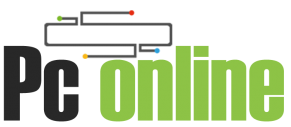Resources, whether human or material, are essential for running a business and their efficient management is essential. This makes businesses search for specialised software that allows them to manage their operations across multiple departments in a smooth manner. An Enterprise Resource Planning or ERP software integrates various processes like finance, manufacturing, and HR into one besides improving productivity, enhancing efficiency, cutting costs, and streamlining processes.
Who Should Use an ERP System?
An ERP can prove useful for businesses that are growing and finding it difficult to manage their resources. Also, companies that are looking for ways to better manage their processes or streamline systems across various locations and divisions should go for an ERP system.
Using ERP software eliminates redundant processes and tasks through automation, in addition to integrating information from various departments into one location. The easy access to data facilitates quick analysis and its usage for forecasting and policymaking. The advancement in technology has also led to the use of machine learning and artificial intelligence in the ERP systems. This provides intelligence and improves business efficiency.
What Benefits Are Offered by an ERP System?
The various benefits of using ERP software are listed below.
Improved Reporting
The use of an ERP system results in better reporting of information at all stages besides the formation of an integrated database for the business processes. The solution eliminates repetitive processes besides reducing manual work. Improved reporting streamlines the functioning across various departments.
Improved Customer Service
Quick access to customer information enables a business to respond quickly and improve delivery timing and speed.
Better Inventory Management
Timely and automated collection of data aids in improved inventory management. This also facilitates good relations between a company and its vendors.
Improved Cash Flows
Better invoicing, and reduced downtimes and wastages result in improved cash flows for a company.
Integration of Various Functions
The integration of various functions including HR and payroll under one platform leads to an improved database and communication between various departments.
Integration with APS
A good ERP software can easily be implemented and integrated with third-party Advanced Planning and Scheduling (APS) software. The APSs allow a business to have a visual representation of their production process and fill any gaps in their ERP systems. Easy integration with APS helps businesses update their priorities, production schedules, and inventory plans without any difficulties.
Ensures Regulatory Compliance
ERP systems are developed in such a way that they allow users to comply with the applicable regulations. These systems even include custom reporting tools to businesses to fulfill their unique disclosure requirements. The step-by-step recording of the programmed sequences ensures that there are no errors in the reported data.
Better Interaction
The use of AI and Machine Learning to include chatbox interface allows employees and other concerned parties to interact well and remain updated about their payroll and other information.
Facilitates Scalability
A structured ERP system allows for the addition of new users and functions anytime, and thus facilitates scalability without any problems.
Data Reliability
ERP provides reliable data that can be accessed from anywhere if you are using cloud-based software.
The best way to reap the benefits of an ERP system is to go for a solution that can be customised according to your business needs.


